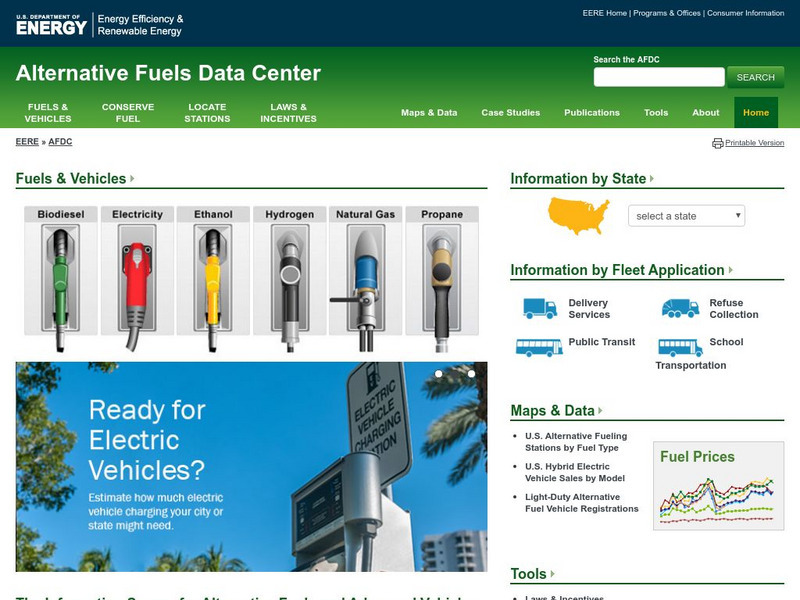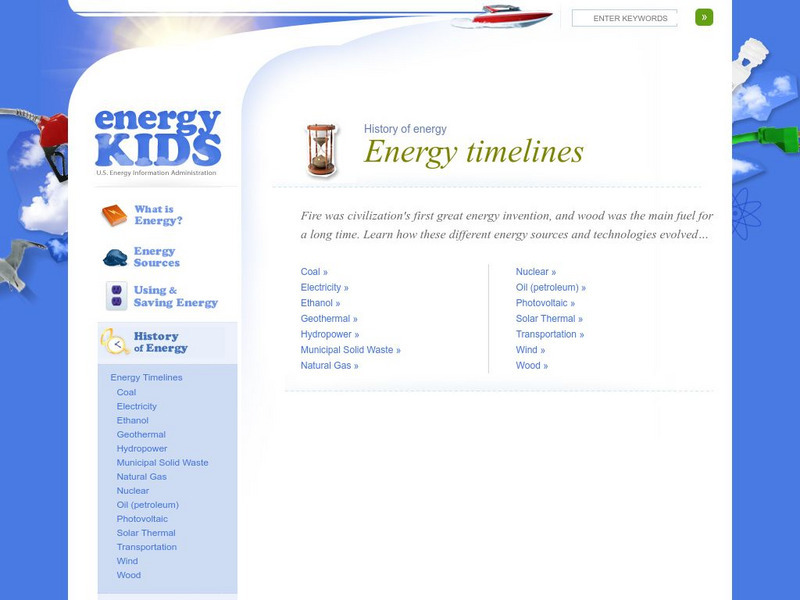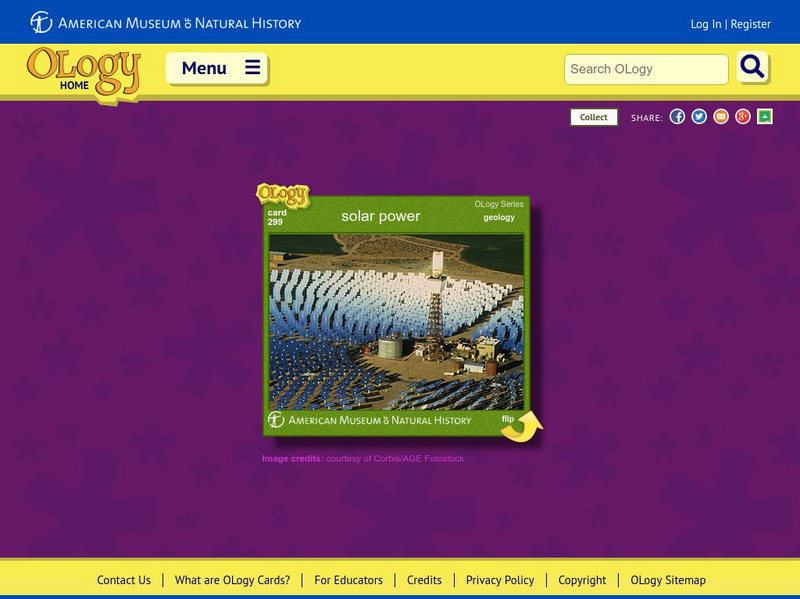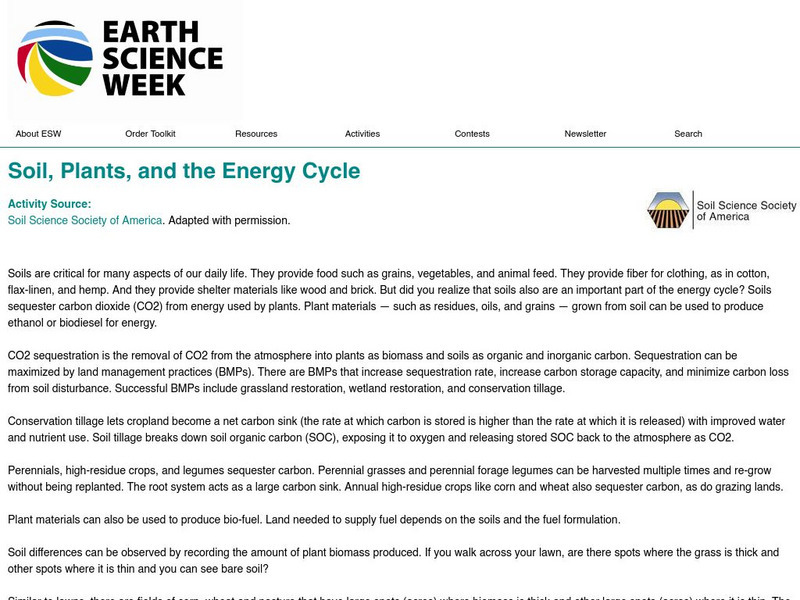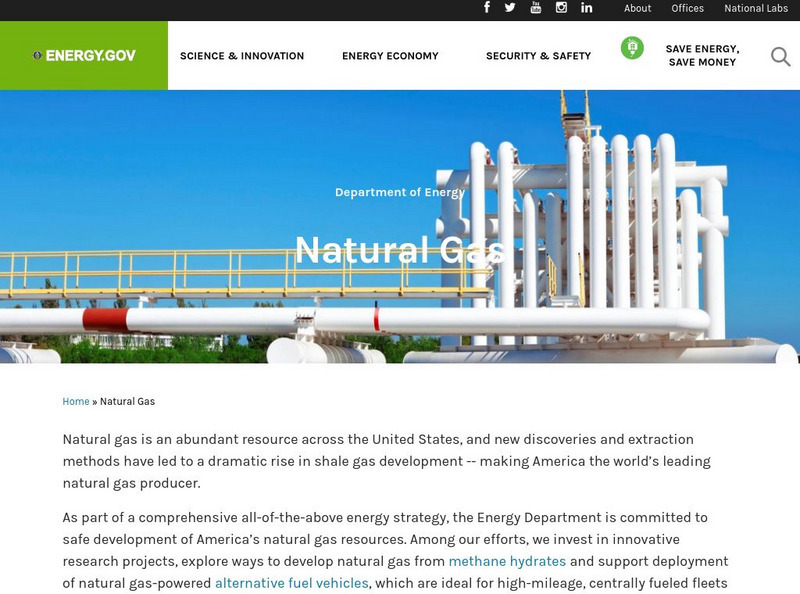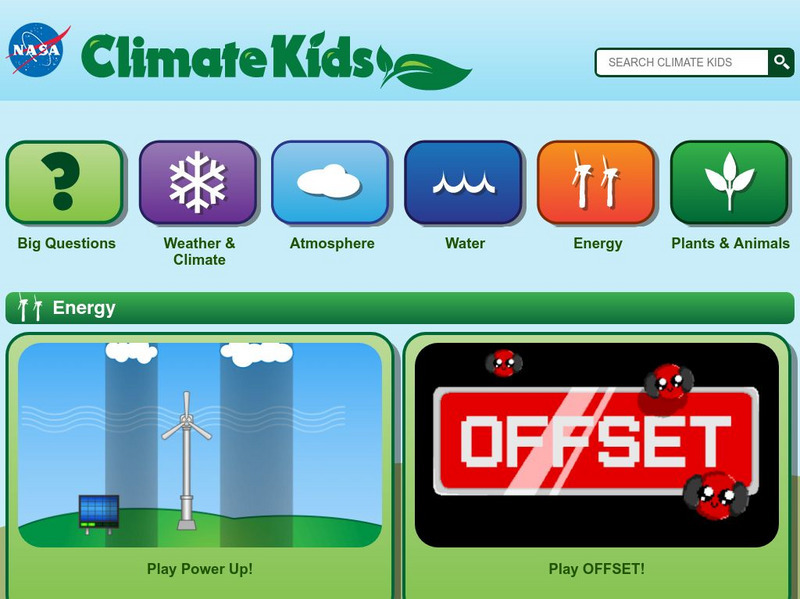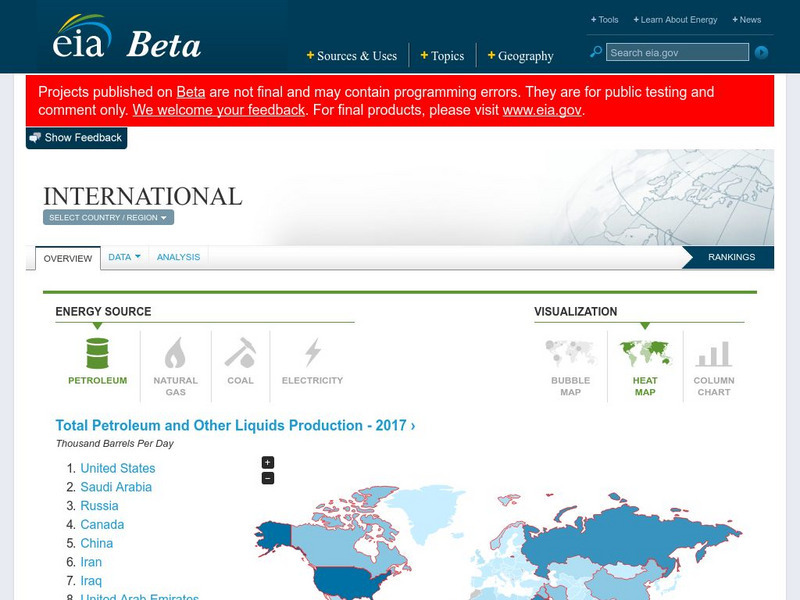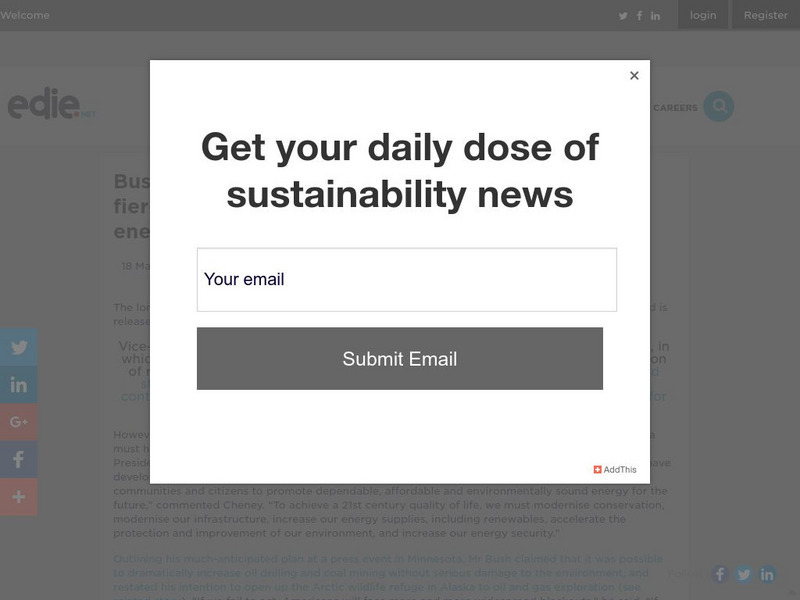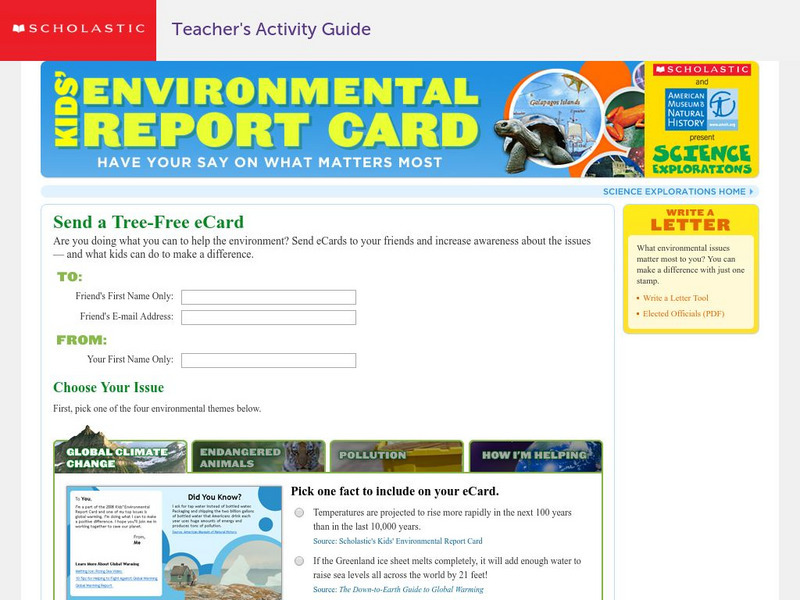Hi, what do you want to do?
PBS
Pbs Teachers: Exploring Alternative Energy Sources
Calculate the increased cost of heating homes and fueling cars since the energy crisis. Investigate alternative renewable and nonrenewable energy sources that can be used to decrease Americans' dependency on fossil fuels.
US Department of Energy
Eere: Alternative Fuels and Advanced Vehicles Data Center Program
The Alternative Fuels and Advanced Vehicles Data Center Program offers valuable information regarding the use of alternative fuels in the United States. This center is sponsored by the U.S. Department of Energy's Clean City action....
PBS
Pbs News Hour Extra: Choosing an Automobile, Understanding Alternative Fuels
This lesson plan encourages students to look at alternative methods of fuel and explore the various impacts each has on the environment.
National Academies of Sciences, Engineering, and Medicine
The National Academies: Our Energy Sources: Nuclear Energy
Nuclear fission energy accounts for a large portion of energy production worldwide. New plants will use improved technologies. There is also research underway to explore how to harness the energy produced from nuclear fusion, but this...
Annenberg Foundation
Annenberg Learner: The Habitable Planet: Energy Challenges
With this resource, users join investigators in the exploration of humans' use of and dependence on the many energy resources. Learn about new technologies such as carbon capture and sequestration as an alternative to reduce our carbon...
PBS
Pbs Learning Media: "Renewable Energy"
WLVT PBS 39 explores how a family in Berks County, Pennsylvania has put much of the renewable energy resources to work on their farm. All of these technologies were showcased at the Renewable Energy Sustainable Living Festival for the...
PBS
Pbs News Hour: America's Energy Addiction
In a February, 2006, report, NewsHour presents a discussion of George W. Bush's energy policy, rising gas prices, alternative energy sources, etc. Transcript, audio and video of report are available.
US Energy Information Administration
U.s. Eia Energy Kids: Energy Timelines
Research different types of fuel to see when major developments occured in their use. Fourteen different types of fuels can be researched, including fossil fuels and alternative fuels.
Council for Economic Education
Econ Ed Link: Be an Energy Saver
This lesson focuses on the scarce and non-renewable nature of fossil fuels in order to stimulate student thinking about energy conservation. It emphasizes the fact that saving energy can be good for the wallet as well as the earth's...
Climate Literacy
Clean: Going for a Spin Making a Model Steam Turbine
Students explore how various energy sources can be used to cause a turbine to rotate and then generate electricity with a magnet.
American Museum of Natural History
American Museum of Natural History: Solar Power O Logy Card
OLogy cards are like virtual baseball cards about all kinds of science topics. This card contains essential facts about solar power.
American Geosciences Institute
American Geosciences Institute: Earth Science Week: Soil, Plants, and the Energy Cycle
Students explore what kind and how much bio-mass can be produced in an area around your city or town. They figure how many gallons of fuel can be expected from one acre of crop land, and how much carbon can be sequestered in the local area.
US Department of Energy
Department of Energy: Natural Gas
Natural gas is an abundant resource across the United States, and new discoveries and extraction methods have led to a dramatic rise in shale gas development -- making America the world's leading natural gas producer. We invest in...
NASA
Nasa: Climate Kids: Energy
Explore energy resources through stories, case studies, activities, and examples.
Other
Abc Da Energia
ABC Da Energia describes the many ways that energy can be obtained and conserved. It explains different sources of energy, how each works, and how energy can be saved in our daily lives. Interactive energy-saving activities and games...
Discovery Education
Discovery Education: Grade 3 5 Module: Designed for Efficiency [Pdf]
In this 3-5 teaching module, students conduct experiments, explore with online interactives, and watch videos that help them understand how vehicles work. Then, students demonstrate their understanding by designing energy efficient...
US Energy Information Administration
Energy Information Administration: Country Analysis Brief
Contains briefs with a narrative section, a map showing the country's location, and a section listing pertinent economic and energy data for every country in the world of interest to energy policy makers.
American Museum of Natural History
American Museum of Natural History: Ology: Rising Co2! What Can We Do?
With this resource, students learn how much fossil fuel emissions have increased since 1600 by exploring a graph showing carbon dioxide in our atmosphere. Then answer questions and read facts about climate change over the centuries....
TED Talks
Ted: Ted Ed: Planning for the End of Oil
As the world's attention focuses on the perils of oil exploration, we present Richard Sears' talk from early February 2010. Sears, an expert in developing new energy resources, talks about our inevitable and necessary move away from oil....
TeachEngineering
Teach Engineering: Environmental Challenges in China
Students learn about the wonderful and fascinating country of China, and its environmental challenges that require engineering solutions, many in the form of increased energy efficiency, the incorporation of renewable energy, and new...
Other
Edie Weekly News: Bush Unveils Energy Plan
This is an article looks at criticisms of the Bush energy plan. Gives perspectives from environmentalists and democrats. A great way to exercise critical thinking skills and weigh various perspectives.
FT Exploring
Ft Exploring: Wind Turbines and the Energy in Wind
Discover the science concepts behind wind turbines and wind energy.
Scholastic
Scholastic: Science Explorations: Kids' Environment Report Card
Cast your vote on the important environmental issues. Associated with each issue, there are at least three links to sites which can further your understanding of the issue. To encourage others to respect the environment, you can also...
King's Centre for Visualization in Science
Explaining Climate Change: What Now? Responding to Climate Change
This is the ninth lesson in a series of learning modules on the topic of climate change. It examines what humans can do to lessen the impact of climate change. Students will look at global data for carbon dioxide emissions now and...






